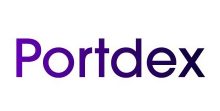Data Governance & Blockchain Technology
Companies of all sizes face a number of challenges related to data governance. These challenges can be broadly categorised into three main areas:
Data quality and integrity
- Data quality issues: Data can be inaccurate, incomplete, or inconsistent. This can lead to poor decision-making, missed opportunities, and even legal and regulatory penalties.
- Data lineage issues: It can be difficult to track the origin and flow of data, which can make it difficult to identify and correct errors.
- Data security issues: Data can be breached or lost, which can lead to financial losses, reputational damage, and regulatory non-compliance.
Data access and control
- Data silos: Data can be siloed in different departments or applications, which can make it difficult to access and use the data effectively.
- Data access controls: It can be difficult to manage who has access to data and what they can do with it.
- Data sharing and collaboration: It can be difficult to share data with external partners while maintaining data privacy and security.
Data governance policies and processes
- Lack of data governance leadership: There may be a lack of clear leadership and accountability for data governance.
- Inadequate data governance policies: Data governance policies may be inadequate or not well-defined.
- Poor data governance processes: Data governance processes may be inefficient or ineffective.
Blockchain technology has the potential to revolutionize data governance by providing a decentralized, secure, and transparent way to store and manage data. Blockchain-based data governance solutions can address the challenges of data quality, integrity, access, and control, and can help companies to comply with data privacy regulations.
Benefits of blockchain-based data governance:
- Decentralization: Blockchain is a decentralized ledger, which means that there is no single point of failure. This makes it more resistant to cyberattacks and data breaches.
- Security: Blockchain is a secure technology that uses cryptography to protect data. This makes it difficult for unauthorized users to access or modify data.
- Transparency: Blockchain is a transparent technology that provides a tamper-proof record of all data transactions. This makes it easier to track the provenance of data and to identify and correct errors.
- Auditability: Blockchain is an auditable technology that provides a record of all changes to data. This makes it easier to comply with data privacy regulations.
- Supply chain management: Blockchain can be used to track the movement of goods through a supply chain, which can help to improve efficiency and reduce fraud.
- Healthcare: Blockchain can be used to store and manage patient medical records, which can improve the quality of care and reduce costs.
- Finance: Blockchain can be used to store and manage financial transactions, which can improve efficiency and reduce fraud.
- Government: Blockchain can be used to store and manage government records, which can improve transparency and accountability.
